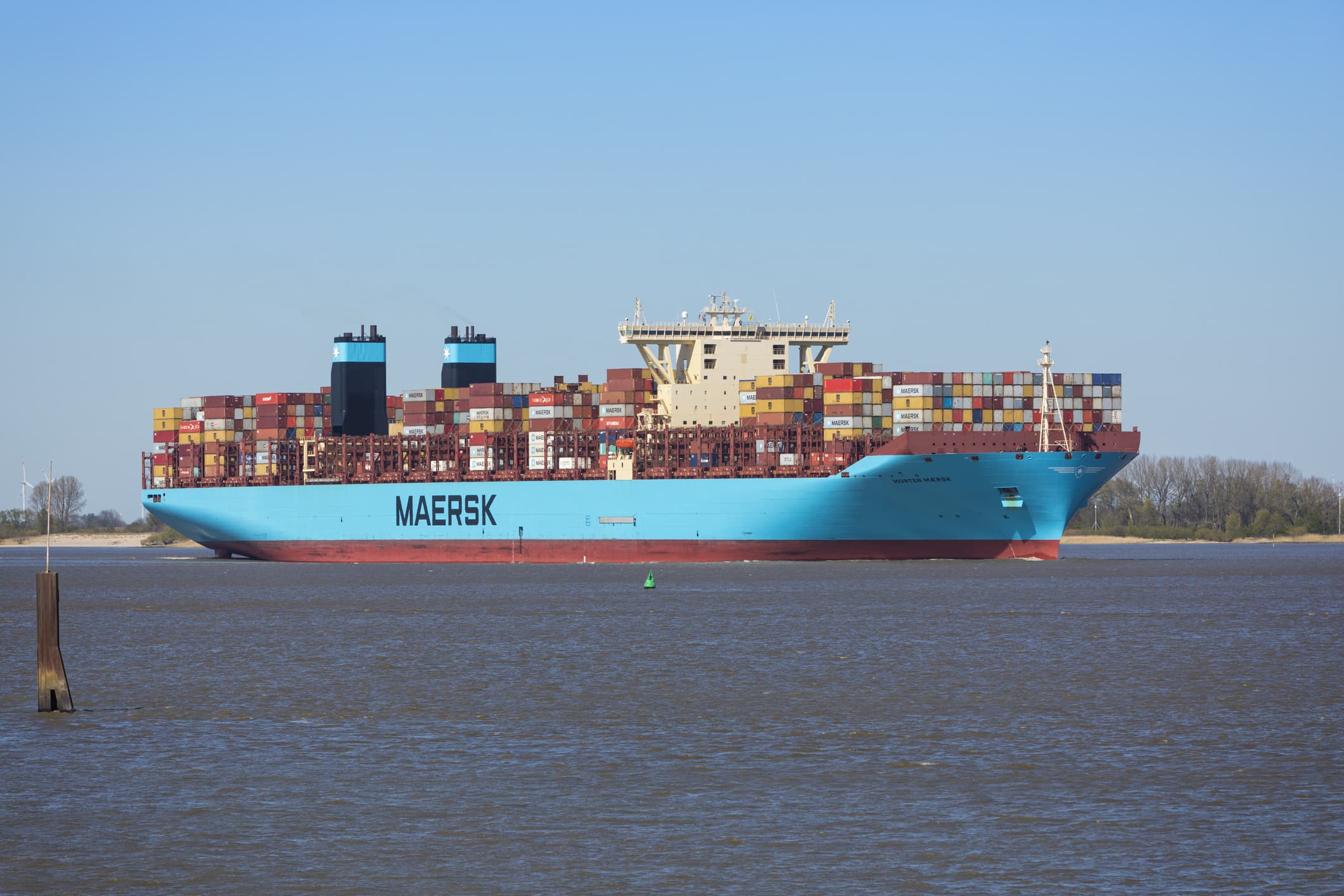The CEO of shipping giant Moller-Maersk admitted to CNBC Thursday that shifting to “green” fuels would come at a cost, but emphasized the importance of focusing on the bigger picture rather than short-term pain.
Soren Skou’s comments come a day after his company said it wanted the entire business to reach net-zero greenhouse gas emissions in the year 2040, 10 years ahead of its previous goal.
“When we embark on this carbon neutrality journey, we are going to use … green fuels,” Skou, who was speaking to CNBC’s “Squawk Box Europe,” said. As a starting point, these fuels were “probably two to three times … much more expensive,” Skou said.
“But we’re looking at this over a 20 year horizon and therefore, we think that the inflationary impact will be very modest when it comes out to the consumer.”
“As an example, we are spending around $400 per container on fuels today,” Skou said. “If it triples we need to spend another $800 per container.”
“That’s of course a lot, but … inside the container you have 8,000 pairs of sneakers, for instance, so it’s 10 cents per pair of sneakers. So that’s why I think … for the consumer, it will be manageable.”
According to the International Energy Agency, international shipping — a crucial cog in the world’s economy — was responsible for approximately 2% of “global energy-related CO2 emissions in 2020.”
With concerns about sustainability mounting and major economies and businesses around the world looking to cut emissions and meet net-zero targets, the sector will need to find new ways of reducing the environmental footprint of its operations.
Back in August, Maersk said it was ordering a number of large, ocean-going vessels able to run on what it called “carbon neutral methanol.” The firm said the vessels would be built by South Korea’s Hyundai Heavy Industries and have the capacity to carry around 16,000 containers.
Maersk said the ships would have a dual fuel engine set up, a feature which increases costs.
“Additional capital expenditure … for the dual fuel capability, which enables operation on methanol as well as conventional low Sulphur fuel, will be in the range of 10-15% of the total price,” it said.
Shipping is not unique in attempting to find more sustainable ways of powering operations. In aviation, for example, a lot of discussions have taken place about the potential of sustainable aviation fuel, or SAF.
Last October the CEO of Ryanair, Michael O’Leary, acknowledged the need for ambitious sustainable aviation fuel targets but also expressed concerns about how food prices could be affected.
During a discussion at CNBC’s “Sustainable Future Forum,” O’Leary said his firm was investing “a lot of money” with Trinity College Dublin on research into SAF.
In April 2021, the two organizations launched a sustainable aviation research center backed by a 1.5 million euro ($1.72 million) donation from the airline. As well as focusing on SAF, the center will look at noise mapping and zero-carbon propulsion systems for aircraft.
Ryanair has itself set a target of powering 12.5% of its flights with SAF by the year 2030. But speaking to CNBC’s Steve Sedgwick, O’Leary said he thought it was “a very ambitious target — I’m not sure we’ll get there.”
He went on to articulate his feelings about the wider effects of increasing SAF usage. “I do worry over the longer term, though, on sustainable aviation fuels … what’s that going to do to food prices going forward?”
“I think we’re going to reach a point in the next 10 or 20 years where there will be challenges posed not just for the airline industry, but for industry in general, around sustainable aviation fuels where it may have an upward impact on food prices.”
